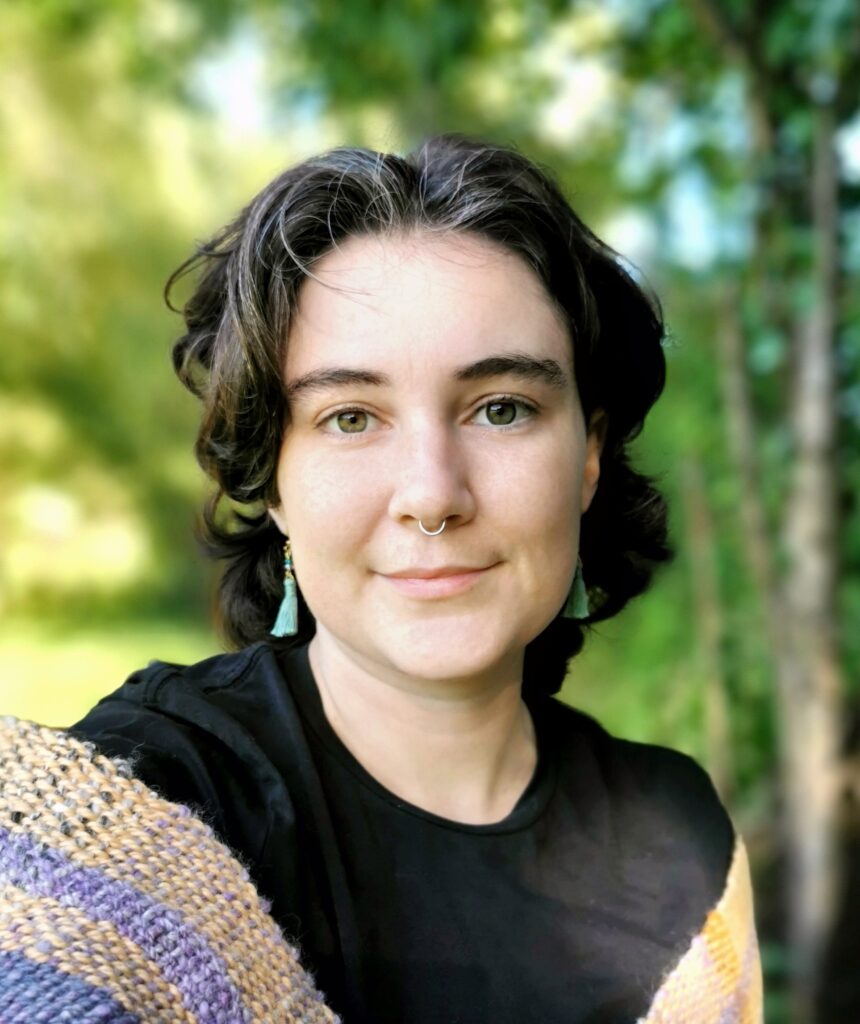
Meet Anni
Anni Jefferson is a registered counseling therapist candidate (RCT-C24-097) with the Nova Scotia College of Counseling Therapists. Anni received their Masters degree in Art Therapy from Concordia University in 2024 and offers both counseling therapy and art therapy.
Anni has a background working in community mental health as well as at a center for adults with neuro-developmental disabilities. Anni offers services to youth ages 13+ and adults, including neurodivergent and disabled folks and members of the 2SLGBTQIA+ community. Some areas of support they offer include: relationships, boundaries, personal and professional growth, emotion regulation, self-care and trauma processing. Specific disorders that Anni has experience working with include: ASD, ADHD, anxiety, depression, PTSD and C-PTSD, bipolar disorder and dissociative identity disorder.
Anni’s goal as a therapist is to support you in developing a holistic sense of wellness that aligns with your beliefs and values. They believe that each person has the capacity for growth and healing and their role is to help you recognize the resources that you already have. Anni takes a client-centered and collaborative approach to their work, meaning that they adapt the therapy process to meet your needs and work at a pace that feels comfortable for you.
What is Art Therapy?
Art Therapy incorporates creative expression and art making into the therapeutic process. The sensory, visual and symbolic aspects of art making are used as tools to support you in achieving your goals for therapy. This could look like using colour to connect with difficult emotions, exploring personal values with collage or using sensory materials like clay to help you relax. Art therapy offers a tangible form of self expression while also giving you a chance to play and experiment.
In addition to talking about what brings you to therapy, an art therapist may invite you to use art materials to explore relevant issues or topics. An art therapist does not interpret artwork made in session but may prompt you to consider what you find significant within the image or process.
There is no ‘right’ way to make art in art therapy and you do not need to have any skill or experience with art to benefit from this modality. Art therapy is for anyone who is curious how creativity and expression can support their wellbeing.
Some people find art therapy helpful because it facilitates insight and awareness by offering a different perspective than simply talking about something. It can also be grounding and meditative and can help you feel more connected to your body.